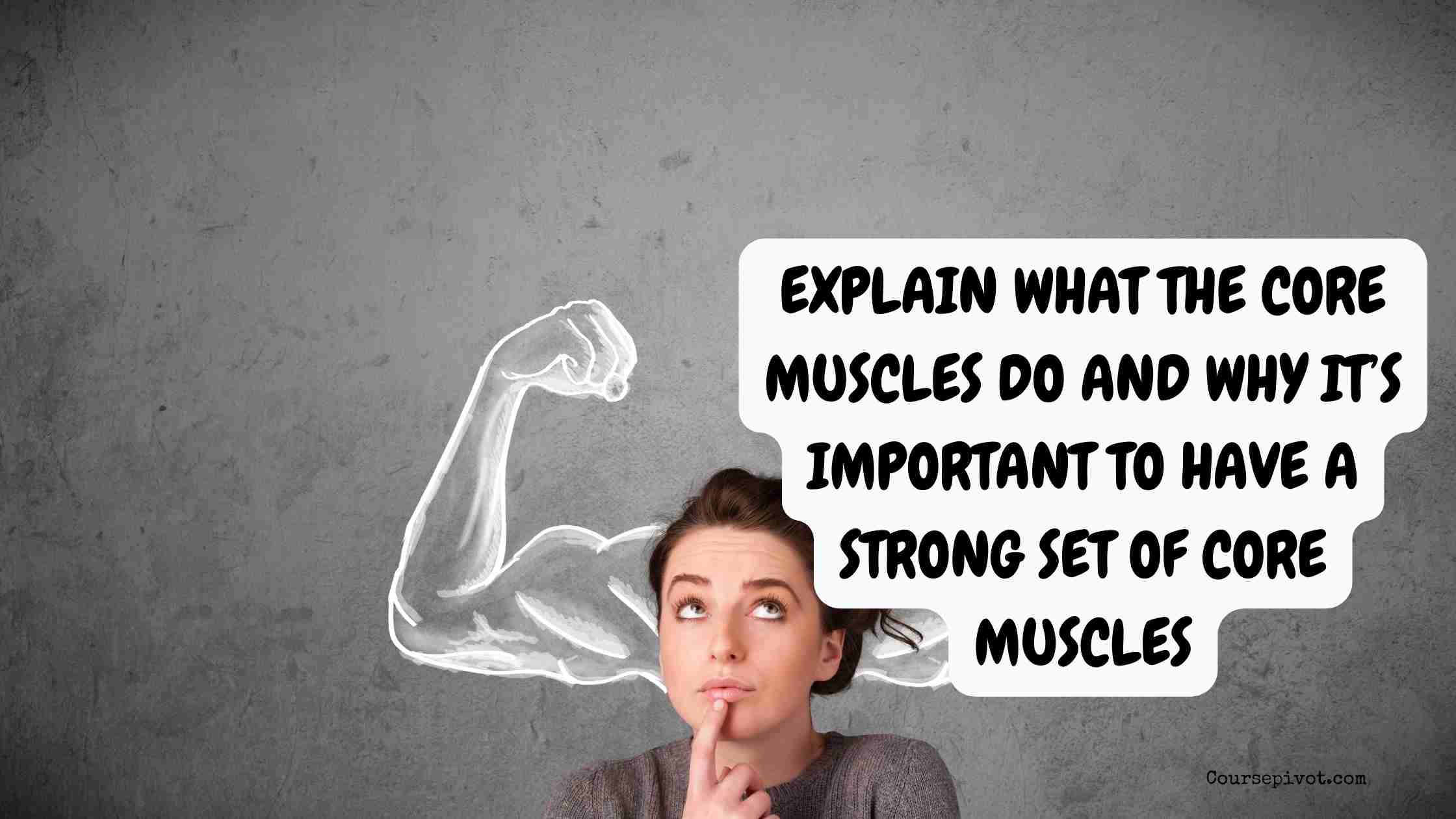
What the Core Muscles Do and Why It’s Important to Have a Strong Set of Core Muscles
When people talk about fitness, the “core” often comes up — but what exactly are core muscles, what do they do, and why does having a strong core matter so much? I’ve learned that understanding these basics can completely change how you approach exercise and daily movement.
- Read our blog on Explain What Distinguishes a Stroke from a Heart Attack
What Are Core Muscles?
The core isn’t just your “abs” or the front muscles you see in a six-pack. It’s a complex group of muscles that includes:
- Abdominal muscles (rectus abdominis, transverse abdominis, obliques)
- Back muscles (erector spinae, multifidus)
- Pelvic floor muscles
- Hip muscles (gluteals and hip flexors)
Together, these muscles form a sturdy, supportive corset around your midsection.
What Do Core Muscles Do?
The core muscles serve several vital functions:
- Provide Stability: They stabilize your spine and pelvis, keeping your body upright and balanced during movement and when standing still.
- Support Movement: Core muscles enable you to bend, twist, reach, and move efficiently. They transfer power from your lower body to your upper body and vice versa.
- Protect Your Spine: A strong core helps protect your spine from injury by maintaining proper posture and reducing strain.
- Aid in Breathing: The diaphragm works closely with core muscles to support effective breathing.
- Assist in Everyday Activities: From sitting at a desk to lifting groceries, core muscles are engaged in almost every action.
Why Is Having a Strong Core Important?
Having a strong core isn’t just about looking good — although that’s a nice bonus. Here’s why it truly matters:
1. Improves Posture and Reduces Pain
Poor core strength often leads to slouching, which puts pressure on your back and neck. Strengthening your core helps keep your spine aligned, reducing back pain and discomfort.
2. Enhances Athletic Performance
Whether you’re running, jumping, swimming, or playing sports, a strong core improves your balance, power, and agility. It helps you move with better control and less fatigue.
3. Prevents Injuries
A solid core stabilizes your body during movement, which reduces the risk of injuries to the back, hips, and knees. It also helps protect you during falls or sudden movements.
- Read our blog on How Exercise Can Positively Affect Your Environmental Health
4. Supports Functional Daily Movements
Simple tasks like standing up, bending over, or carrying a child require core strength. A strong core makes these actions easier and safer.
5. Boosts Balance and Stability
Core muscles keep your balance whether you’re standing on one leg or walking on uneven surfaces. This is especially important as we age to prevent falls.
How to Strengthen Your Core
Strengthening the core doesn’t mean endless crunches. It involves exercises that target all core muscles in a balanced way, such as:
- Planks
- Bridges
- Bird-Dogs
- Leg Raises
- Rotational movements like Russian twists
These moves train your core to stabilize and move efficiently.
Here is my Thoughts
Your core is literally the center of your body’s strength and stability.
Having a strong set of core muscles improves posture, supports movement, protects your spine, prevents injuries, and boosts overall physical performance.
If you want to feel stronger, move better, and reduce pain, focusing on core strength is one of the best things you can do.
Strong core, strong foundation—that’s how you build a healthier body that works for you every day.
Cite this article
You can copy and paste your preferred citation format below.
Martin, L. & Arquette, E.. (2025, May 26). What the Core Muscles Do and Why It’s Important to Have a Strong Set of Core Muscles. Coursepivot.com. https://coursepivot.com/blog/explain-what-the-core-muscles-do-and-why-its-important-to-have-a-strong-set-of-core-muscles/



